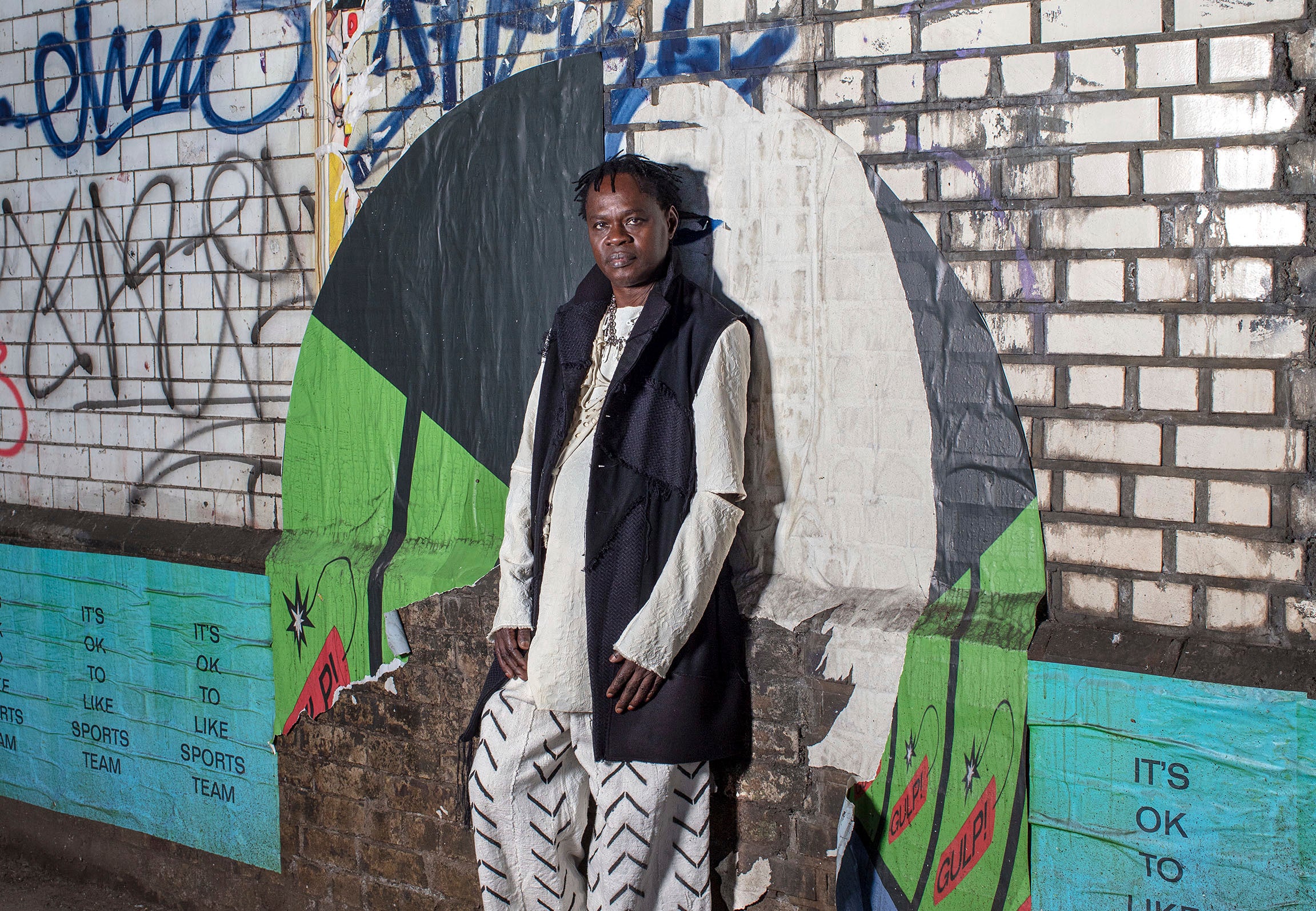Senegal's Baaba Maal returns after years with new album
Amid a changing, modernizing world with climate change threatening his home, Senegalese singer-songwriter and activist Baaba Maal is releasing his first album in seven years

Your support helps us to tell the story
From reproductive rights to climate change to Big Tech, The Independent is on the ground when the story is developing. Whether it's investigating the financials of Elon Musk's pro-Trump PAC or producing our latest documentary, 'The A Word', which shines a light on the American women fighting for reproductive rights, we know how important it is to parse out the facts from the messaging.
At such a critical moment in US history, we need reporters on the ground. Your donation allows us to keep sending journalists to speak to both sides of the story.
The Independent is trusted by Americans across the entire political spectrum. And unlike many other quality news outlets, we choose not to lock Americans out of our reporting and analysis with paywalls. We believe quality journalism should be available to everyone, paid for by those who can afford it.
Your support makes all the difference.Amid a changing, modernizing world with climate change threatening his home, Senegalese singer-songwriter and activist Baaba Maal is releasing his first album in seven years, “Being,” on Friday.
The genre-crossing album, released by Marathon Artists, is explores those themes and showcases traditional African instruments along with futuristic electronic sounds.
The first single from the record, “Yerimayo Celebration,” is a jubilant, rabble-rousing celebration of Maal’s roots in the small town of Podor in north Senegal, and the fishing community at its heart. Maal was born into a fisherman class and was expected to follow that career path, but he befriended Mansour Seck, a griot — or traveling storyteller and musician — and was welcomed into his family.
“I never thought I would stay in one place and doing one thing every day in my life. This is why music is a really good opportunity for me to go away, first, like a young person, like going on an adventure,” he said. “And it’s a way to liberate me and the people of my generation of this caste system where you have to stay in this place, do the same thing like your father or grandfather."
Maal’s latest single, “Freak Out,” features vocalist Esau Mwamwaya of The Very Best. The video accompanying the track shows scenes from the Blues Du Fleuve festival, which Maal founded in his hometown on the Senegal River, bringing together musicians, artists, singers, activists and more from all over West Africa. Maal calls it “The Glastonbury of Africa.”
The veteran musician is headlining the Barbican in London for the first time in 20 years on May 30 and the audience can expect a unique experience.
“Music is a celebration and music is a party and when it comes to an African party, it has to be an African party,” he added.
As well as being a musician, Maal is also an activist on the topics of climate change and refugees. Since 2003, he has been committed to various development challenges in Africa, working with different United Nations organizations.
His NANN-K Trust recently opened a solar-powered irrigation project in Senegal to fight desertification, which is one of the main drivers of people leaving on dangerous migration routes. The project will train people to start similar schemes in their own communities and Maal is a particular believer in putting power in the hands of young people and women.
“We are chanting, we are crying, we are saying loud that we need a green Africa and a green Africa to make people to live really a normal life, to face climate change, desertification — all of that,” he said.
Maal also contributed to the soundtrack of “Black Panther: Wakanda Forever,” and the 69-year-old’s participation in Marvel’s blockbuster franchise has brought him to a new, much younger audience. He believes the franchise can inspire new hope for the African continent.
The movies are set in the fictional African paradise of Wakanda, a country that is rooted in tradition and yet has the most advanced technology in the world. The visionary musician sees a template for Africa in the “Black Panther” films’ Afrofuturism.
“I have a feeling ... that something great should be coming from this continent again, and something positive for the world,” he said. He characterizes it as “a door which is open for Africa, not just for Baaba Maal.”
"It’s for the continent,” he said.